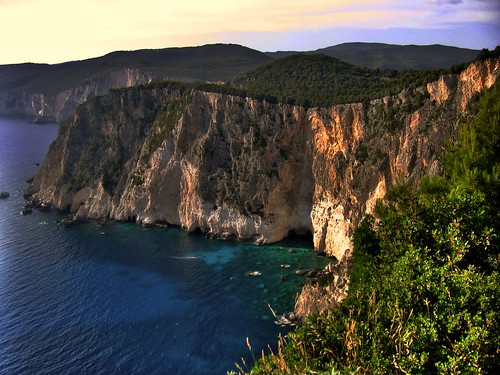Zakynthos was inhabited from the Neolithic Age, as some archaeological excavations have proved.
The famous ancient Greek poet and writer, Homer, first mentioned the island in his masterpieces, the Iliad and the Odyssey, stating that the first inhabitants of it were the son of King Dardanos of Troy called Zakynthos and his men and that they first came on the island around 1500-1600 BC.
The island was then conquered by the Great Imperial King Arkeisios of Kefalonia. The famous Ulysses (Odysseus in Greek) from Ithaca was the next King to conquer the island.
Later on, a treaty was signed that made Zakynthos an independent democracy, the first established in the Hellenic area, and that lasted more than 650 years.
Zakynthos town with the port
Navagio (shipwreck) BayZakynthos, along with the rest of the Ionian islands, spent centuries as a subject of the Republic of Venice and other Italian principalities. Italian rule protected the island from Ottoman domination but in its place it put a feudal oligarchy. The cultural influence of Italy (and of Italian on local dialect) was considerable. The wealthy made a habit of sending their sons to Italy to be educated. A good example is Dionysios Solomos, a native of Zakynthos and Greece's national poet. However, both the Greek language and Orthodox faith survived intact. During the Napoleonic wars the islands were occupied at different times by France, as part of the département Mer-Égée (which induced the peasants to revolt), Russia, Turkey (Septinsular Republic) and finally Britain, which held on to them under the guise of the United States of the Ionian Islands until 1864, when they were ceded to Greece to stabilize the rule of the newly crowned Danish-born King of Greece, Georgios I.
HDR (=
Εγκατάσταση client του Copy σε Ubuntu
Πριν από 11 χρόνια


Δεν υπάρχουν σχόλια:
Δημοσίευση σχολίου